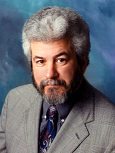 Of the few words in our vocabulary that can bring life to a grinding halt, the term "cancer" is certainly one of the most dreaded.
Of the few words in our vocabulary that can bring life to a grinding halt, the term "cancer" is certainly one of the most dreaded.
When used in the context of a diagnosis that applies personally or to a loved-one, the immediate and all-encompassing response is difficult to put into words. For some it has been described as an extended interval between heartbeats or breaths; a sense of being suspended in a dark and dismal place where even one's deepest feelings cannot enter.
With the next heartbeat or deep breath, however, life begins again. Yet living is never the same. For everything seems to have changed inside. The differences aren't immediately apparent, as one's existence is readily swept into a whirlwind of aggressive diagnostic tests and procedures. A sickening numbness ensues, upon which the quest for survival takes precedent.
From consultation to surgery, chemotherapy and radiation in some cases, a semblance of hope flickers that enables one to proceed through uncharted territory. With family and friends at one's side, time becomes irrelevant as waiting between office visits, test results and procedures evolves into a blurred continuum where seconds, minutes, hours, days and even weeks blend seamlessly into oblivion.
Then one day, it's suddenly over - the tests, medical interventions and procedures that is. There are no scheduled visits in the near future and no immediate steps or progress to anticipate. Loved-ones and friends revert to normal routines and family interactions tend to settle into what used to be. For the person with cancer, life is never the same. And the numbness is overwhelming. Yet life goes on.
The realization of having completed an initial treatment plan is often far from comforting. For even in remission, the sense of having cancer never leaves. What's missed most is the nurturing that was fostered in a time of need - a period of transition through a sea of numbness.
Awakening each day with an emptiness that's difficult to fill is horribly unsettling. It doesn't take a stretch of the imagination to view that void filled with cancer. For some, this period is considered the beginning of the end (a silent and often unnoticed progressive demise), while for others it's a turning point - an opportunity to put back into life what is missing. Survivors often refer to this opportunity as the "gift of cancer" - a perspective that depends entirely upon one's choice.
Unfortunately, the critical juncture that has the potential to become a turning point often goes unrecognized by the medical profession. Few physicians ever contemplate those "two roads diverged in a yellow wood" that each cancer patient must choose. This stage is typically devoid of any medical attention. I often wonder what physicians anticipate their patients to be thinking or doing during the ensuing 3-4 months until the next visit. Many are unwilling to open Pandora's box.
Yet for other practitioners who understand the plight of the patient with cancer, there is a deep commitment for helping to turn that void into an opportunity. Whole person cancer programs such as Insights for Living Beyond Cancer with Bernie Siegel, MD seize that moment as a chance to inspire a refreshing sense of hope, perseverance and healing.
Bernie's approach is a reflection of our capacity as medical professionals to strive beyond the confines of traditional approaches to enable people to reach their maximum potential. Insights for Living Beyond Cancer is not an alternative to conventional care. It is the missing link; the glue that joins mind, body and spirit through evidence-based choices each person can make to live a rewarding and meaningful life amidst the challenges of a serious chronic illness that can surface again without warning.
This approach, often referred to as psycho-oncology provides the necessary tools and framework for choosing to live rather than surrendering to tragedy. Success is not measured in terms of survival or duration of life. It is quality and meaning that matter.
From learning to develop a healthy belief system to building and maintaining support networks, to discovering one's meaning and purpose in life and restoring an ongoing sense of hope, patients who experience this approach know success one step at a time. A needed sense of camaraderie and a willingness to welcome traditional treatment choices with positive anticipation rather than fear naturally develops as one becomes attuned to their inner healing potential. Ultimately, people learn to choose the ways to share their love and to cherish the gift of each new day.
Having treasured the opportunity to develop this program with Dr. Siegel, I more fully realize the need for our nation's healthcare system to encourage the development of synergistic strategies that fill the voids that serve to undermine healing. When we open our hearts to recognize the fact that it's people we're treating rather than diseases, medicine will naturally evolve into a true art and science of whole person care - Mind Over Matter!
© 2000 Barry Bittman,
MD all rights reserved
Barry Bittman, MD is a neurologist, author, international speaker, inventor and researcher. He is the CEO and Director of the Mind-Body Wellness Center, 18201 Conneaut Lake Road in Meadville, phone (814) 724-1765, fax (814) 333-8662, www.mind-body.org.
Contact Dr. Bittman